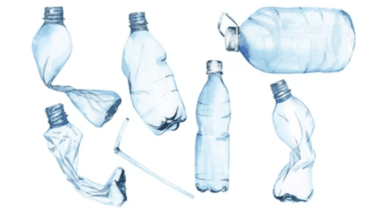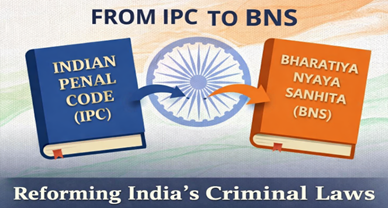Plastic Pollution and Sustainability- The Need for Sustainable CSR Policies
Existence without plastic in today’s world is unthinkable. Everyone on Earth uses plastic with its output having increased more in the last decade than in the previous century. According to the World Economic Forum, India generates 56 lakh tonnes of plastic rubbish yearly, 60% of which enters the oceans. The UN Environment Programme estimates that 400 million tonnes of plastic are produced annually, half of which is single use. This material recycles under 10% and between 19 and 23 million tonnes of plastics enter lakes, rivers, and seas annually.[1] That weighs about 2,200 Eiffel Towers. Over 800 marine and coastal species are threatened by ingesting, entangled, or otherwise affected by this pollution.
The rise of plastics in farming could hurt future generations who must clean up harmful waste. Degradation can irreversibly damage soil and food security. Plastic accounts about 10% of our garbage. Due to reckless plastic use, the “COMMERCIAL TRUTH” is out.[2] The Plastic Lobby is politically well-connected. A few product restrictions won’t help. Plastic overuse can hurt the environment and suffocate resources if not properly disposed of. The decomposition of plastic releases harmful chemicals into the atmosphere.[3] Large amounts of partially biodegradable compounds are in soil. Pollution in air and water is serious. Certain released chemicals react, making them more hazardous and jeopardising life.
Should Sustainability be included mandatorily in the CSR Policy of businesses?
In recent years, several corporations have adopted CSR and ethics declarations. Your company’s ideals shape your community, state, nation, and industry behaviour. Many have heard of “corporate social responsibility,” but they may not know what it means in terms of daily operations, foreign engagement, or environmental and social impacts.[4] Businesses who want to reduce plastic trash must be more transparent with customers. People are becoming more aware of plastics’ detrimental effects and long-term concerns and changing their shopping habits.
In 2014, Nielsen surveyed 30,000 people in 60 countries to assess their environmental advocacy and consumption. 55% of respondents, up from 50% in 2012, stated they would pay more for goods and services from socially and environmentally responsible companies. This shows that customers are changing their habits to benefit society and the environment. If customers change behaviours, shouldn’t businesses? Nielsen found that packaging information influenced over half of respondents’ purchases. These purchasers check companies’ community and environmental impact online.[5] This study found that “plastic reduction” slogans on product packaging boost sales.
Companies, organisations, and corporations can contribute immediately by implementing innovative changes. To stay in touch with most customers and ensure your business’s long-term survival, you must go beyond traditional CSR models and include focused initiatives like taking the TAP Pledge against single-use plastics in the workplace and operations.[6] Numerous firms have gone above and above by partnering with NGOs and environmental groups to fund plastic reduction. Over 40 companies, including Aldi, Nestle, Coca-Cola, Procter & Gamble, and PepsiCo, have pledged to reduce plastic waste over the next seven years. The companies will use less single-use packaging and choose more sustainable choices.
Actions to be taken?
India’s plastic trash management requires serious dedication. To solve the country’s problems, it will take input from all levels of society, including leaders in government and business, experts in all fields, and even trash collectors. However, public participation is crucial to the success of reducing plastic pollution.[7] People have to be willing to commit to the solution for it to work. Biological wastes can be composted, and the hazardous and non-hazardous waste can be segregated and managed separately. The cost and energy of waste disposal are high. Since recycled plastic gets repurposed, recycling would not function. China, Indonesia, the Philippines, Vietnam, and Thailand—all in Southeast Asia—dispose of more than half of the eight million tonnes of plastic poured into the oceans annually. A recent World Wildlife Fund report found that unchecked human consumption has wiped out 60% of the world’s fish, birds, amphibians, mammals, and reptiles in the past 50 years.[8]
With research and potential solutions, governments, corporations, and other stakeholders must scale up and move faster to help solve this crisis. A company’s environmentally friendly electronic measurement solutions accelerate innovations that change lives, make the globe safer, and link people worldwide, helping build a better planet.[9] Any firm must care about its workers, the environment, and the communities where it operates. A strong commitment to running a firm ethically, legally, sustainably, and socially is its foundation. Transitioning to a circular economy could reduce ocean plastic by more than 80
% by 2040, virgin plastic production by 55%, government spending by $70 billion, and greenhouse gas emissions by 25%, according to the UNEP. Companies can help create a circular economy by designing and manufacturing products to last up to 40 years and offering services like calibration, repair, and remarketing.[10] Our machinery is periodically examined, maintained, reconditioned, and recycled to promote a circular economy.
To turn plastics from a pollutant to a solution, land-based waste plastic must be reduced. Given that plastic garbage can last generations, this is crucial. Continuing business or behaviour as usual is no longer possible. From avoiding single-use plastic products to finding long-term alternatives, we can all help improve the issue.[11] There is no single solution to plastic pollution. Innovation is needed to ensure the transition and stop dangerous plastics from entering our lakes, rivers, seas, and oceans. If we want significant change, we must collaborate and make informed purchases and decisions.
Way Forward
The World Economic Forum and Ellen MacArthur Foundation forecast that by 2050, plastic might outweigh fish in the oceans. Businesses and communities must develop solutions to reduce. Waste plastic recycling, reuse, and other approaches reduce virgin plastic production. However, this won’t solve plastic pollution worldwide.[12] Disposable plastics must be used less to achieve this. Commercial negotiations always prioritise cost and profit. Customers’ values go beyond labels and packaging. Companies can save money and minimise dangers by promoting plastic reduction in their CSR plans.[13] There are various approaches to promote plastic reduction. First and foremost is eliminating disposable plastics. Your company should find creative ways to reduce plastics in packaging in addition to sourcing recycled plastic, using only recyclable plastic in products and packaging, investing in alternative product, and packaging materials, and working directly with suppliers and distributors that share your CSR plan’s values.[14] Businesses can save up to 90% on production costs by using recycled materials, which lowers prices for customers. Recycling creates six times more jobs than sourcing new ones. Taking the TAP company pledge is a great way to hold your firm to high standards. The plastic pollution problem is serious and requires intention and tangible efforts, regardless of how good the inventions are. Your firm may help solve the global plastic problem by adding a plastic reduction message to your corporate social responsibility plan and taking concrete efforts to implement it. In a world where social and environmental values change, firms must lead with a strong CSR strategy.[15]
Author:– MUSKAN, in case of any queries please contact/write back to us at support@ipandlegalfilings.com or IP & Legal Filing.
[1] (n.d.). https://ecofriendlycoffee.org/plastic-pollution-and-green-social-responsibility/
[2] (n.d.). https://www.ndtvprofit.com/opinion/world-environment-day-2023-indias-pivotal-role-in-combating-plastic-pollution
[3] (n.d.). https://consultivo.in/blogs/sustainability-beating-plastic-pollution/
[4] (n.d.). Environment and Social impact. https://thecsrjournal.in/csr-beating-plastic-pollution-future-now-framework/
[5] (n.d.). https://practicalaction.org/best-ways-to-fight-plastic-pollution/?gad=1&gclid=CjwKCAjw1YCkBhAOEiwA5aN4AW477jXwcIO4GlTIrS6IXX-njRKlcnMttL3o9U4ZFC5z-1N5a8_foxoCqmoQAvD_BwE
[6] (n.d.). https://www.travelersagainstplastic.org/tap-blog/why-plastic-reduction-should-be-part-of-every-corporate-social-responsibility-plan
[7] (n.d.). https://theprint.in/ani-press-releases/beatplasticpollution-reducing-plastic-use-with-disclosures/1612517/
[8] (n.d.). https://www.alliedacademies.org/articles/plastic-pollution-in-the-environment-in-india-24337.html
[9] (n.d.). https://www.c40knowledgehub.org/s/article/How-to-reduce-single-use-plastics-in-the-food-sector?language=en_US&gclid=CjwKCAjw1YCkBhAOEiwA5aN4AYwNd924jiyNPDr3kORZSmSQmo70LyTywKYeyqB-Ak67NADxY_sQyxoCH0sQAvD_BwE
[10] (n.d.). https://www.indiatoday.in/environment/story/why-plastic-pollution-continues-unchecked-in-india-2289887-2022-10-27
[11] (n.d.). https://www.unep.org/news-and-stories/press-release/world-environment-day-brings-solutions-plastic-pollution-focus
[12] (n.d.). https://www.weforum.org/agenda/2022/06/impact-investing-the-broader-responsibility-of-businesses-in-achieving-sdgs/
[13] (n.d.). https://www.sciencedirect.com/science/article/pii/S2666188821000204
[14] (n.d.). https://link.springer.com/referenceworkentry/10.1007/978-3-030-22438-7_68-1
[15] (n.d.). https://csrtimes.org/tackling-plastic-pollution-for-profits-non-profits-and-citizens-does-matter/



